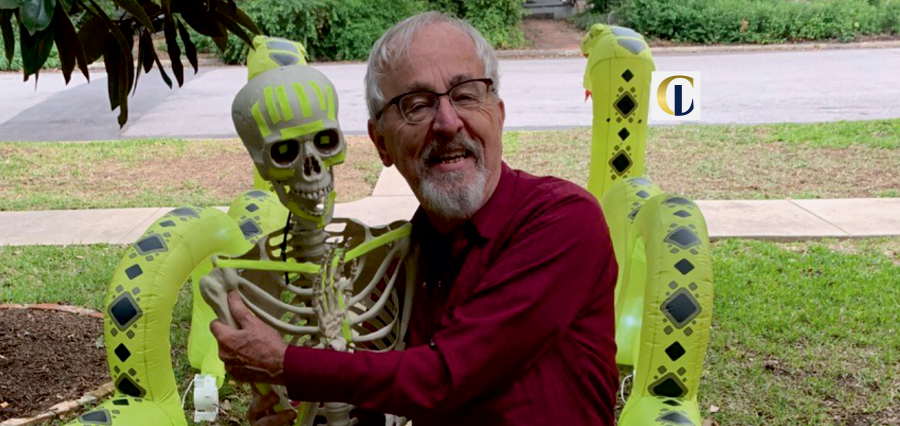Dr. Richard C. Larson’s career is a remarkable testimony to the power of intellectual curiosity, discipline, and a lifelong commitment to practical problem-solving. Widely recognized for his pioneering contributions to Operations Research and Industrial Engineering, Dr. Larson has carved a unique path as both a scholar and practitioner. As a Pinnacle Professional Member of the Inner Circle of Excellence, he has stood at the forefront of innovation, continually shaping how engineering is taught, studied, and applied.
Educated at the prestigious Massachusetts Institute of Technology (MIT), Dr. Richard C. Larson’s career has spanned decades of leadership in academia, authorship, and professional service. He has been deeply engaged in mentoring the next generation of engineers and data-driven decision-makers, not just through lectures but by embedding model thinking into the DNA of modern operations research. His work bridges the often-separated worlds of theoretical modeling and its practical application in real-life systems—from public safety and urban infrastructure to daily personal decision-making.
Yet, beyond the accolades and scholarly contributions, Dr. Richard C. Larson’s approach is deeply human. His personal life, grounded in love for family and deep gratitude toward those who supported his academic pursuits, reflects the same balance and clarity he brings to model-based analysis. With a fresh publication in 2023 and new ambitions to reach wider audiences through major booksellers, Dr. Larson is not only looking back on a legacy of impact but also forward to a future of continuing influence.
Academic Foundation: Building an Intellectual Legacy
Dr. Richard C. Larson began his academic journey with a Bachelor of Science in 1965, soon followed by a Master of Science in 1967, and ultimately a Doctor of Philosophy in 1969—all earned from the Massachusetts Institute of Technology. These formative years at MIT ignited his passion for applying analytical thinking to real-world systems and planted the seeds for what would become a lifelong commitment to innovation in academia.
Over the years, Dr. Richard C. Larson’s scholarly work has been characterized by its rigor, relevance, and wide-ranging impact. From teaching engineering students at one of the world’s leading institutions to conducting research that reshaped how cities manage services and operations, he has consistently strived to bridge theory and practice. His profound understanding of complex systems and his ability to simplify them through models have made him an exemplary figure in higher education.
His academic contributions are not only theoretical but deeply pragmatic. Whether it’s optimizing ambulance response times or modeling school choice systems in urban areas, Dr. Richard C. Larson has always sought to ensure that the lessons taught in classrooms lead to measurable changes in the communities those students go on to serve.
Professional Milestones: Leadership and Influence
Throughout his career, Dr. Larson has assumed key leadership roles that have helped shape the landscape of operations research. As a past president of both the Operations Research Society of America (ORSA) and the Institute for Operations Research and the Management Sciences (INFORMS), he has contributed significantly to the growth and modernization of these influential bodies. His leadership fostered a generation of professionals who now serve in roles across academia, industry, and government.
Dr. Richard C. Larson also applied his expertise in professional practice by directing firms such as Public Systems Evaluation (PSE), Inc., and Structured Decision Corporation (SDC). These organizations translated academic models into actionable strategies for urban professionals in cities like New York and St. Louis. Whether working with transportation departments or city planners, these projects reflected Dr. Larson’s firm belief that intellectual tools should drive social progress.
His consulting work, in tandem with academic pursuits, furthered his mission to demystify complex decision-making for those without formal training in operations research. This dual role—as both educator and consultant—allowed him to ensure that the tools of analysis were not confined to elite institutions but were made available to serve the public interest.
Recent Contributions: Making Models Matter
In 2023, Dr. Larson reached a new milestone with the publication of Model Thinking for Everyday Life: How to Make Smarter Decisions, published by INFORMS. The book reflects decades of learning, teaching, and living the principles of operations research. It offers readers an accessible yet powerful guide to using models to understand and improve decision-making in daily life.
This publication is more than a culmination of academic expertise—it is a bridge to the general public. Through it, Dr. Richard C. Larson hopes to equip readers with a mindset that emphasizes logic, prediction, and strategy, regardless of their professional background. From deciding when to leave home for a meeting to navigating complex financial decisions, the book demonstrates how modeling can improve clarity and outcomes in everyday scenarios.
The book has received praise from both academics and practitioners, with many citing its relevance in a world where decisions are increasingly influenced by data, algorithms, and uncertainty. It has also served as a capstone to Dr. Richard C. Larson’s lifelong mission to extend the reach of operations research beyond the confines of universities and research centers.
Personal Reflections: Family, Gratitude, and Balance
Behind every accomplishment is a strong support system, and Dr. Richard C. Larson openly acknowledges the vital role his family has played in his journey. He expresses deep gratitude to his late wife, M. Elizabeth Murray, whose support and partnership enriched his life both personally and professionally. Her presence was a constant source of encouragement throughout his academic and consulting work.
Dr. Larson also credits his children—Erik, Evan, and Ingrid—for their love and belief in his work. Their encouragement, he says, has fueled his continued curiosity and energy even in the later stages of his career. In moments of recognition and acclaim, he often turns inward with humility, recognizing the emotional and intellectual support that his family provided throughout the years.
For Dr. Richard C. Larson, family is not separate from his professional world; it is the foundation upon which his intellectual and practical contributions are built. The balance he has maintained between personal commitments and professional aspirations stands as an example to younger generations navigating demanding careers in STEM fields.
Forward Focus: Expanding Public Understanding
While many in his position might look to retirement, Dr. Larson remains steadfast in his mission to educate, inspire, and innovate. One of his immediate goals is to bring Model Thinking for Everyday Life to broader audiences through major retailers like Barnes & Noble. He envisions the book as part of a wider cultural movement—one that empowers individuals to use models not only in business or engineering but in everyday choices and civic engagement.
Dr. Larson believes that democratizing model thinking can be transformative. He often says that the ability to make smart, informed decisions shouldn’t be limited to experts. By teaching model-based approaches in a digestible format, he aims to make these tools available to everyone—from high school students to retirees—who wish to improve their reasoning and problem-solving skills.
His commitment to outreach is evident in his plans to continue speaking, teaching, and publishing. Whether through university seminars, public lectures, or partnerships with educational platforms, Dr. Richard C. Larson hopes to ensure that model thinking becomes a foundational skill for navigating the complexities of the modern world.
Industry Impact: A Model of Application
Dr. Larson’s influence extends far beyond classrooms and books. His methodologies have been used to redesign emergency response systems, enhance urban planning, and even streamline educational choice frameworks. Governments and agencies have leaned on his models to optimize systems and allocate resources more effectively.
The emphasis of his work has consistently been on real-world applications. Whether it’s modeling queue systems for public services or assessing data reliability in uncertain environments, Dr. Richard C. Larson’s work has had measurable social benefits. His belief that good decisions stem from good models has led to improvements in efficiency, equity, and accountability across a range of industries.
His consulting efforts with PSE and SDC stand as early and pioneering examples of how academic knowledge can be translated into societal impact. It is this fusion—of deep knowledge with real-world relevance—that defines the Dr. Richard C. Larson legacy.
Mentorship and Legacy: Shaping Future Generations
Mentorship has been central to Dr. Larson’s career. His role as a professor is not confined to lectures or textbooks; it involves nurturing the analytical curiosity of young minds. Many of his former students now hold leadership roles in universities, government agencies, and global corporations. They carry forward the values and insights that Dr. Larson imparted—critical thinking, ethical decision-making, and commitment to community betterment.
Dr. Larson frequently reminds his students that models are tools, not answers. The responsibility lies in how they are used, who they serve, and whether they account for the human variables that numbers cannot capture. This nuanced approach has made him not only a great teacher of models but a model teacher.
His legacy is already visible in the ripple effects of his mentorship, his research, and his contributions to professional societies. But for Dr. Larson, the work is far from finished. His eyes remain fixed on the horizon, where new challenges await and where model thinking continues to illuminate paths forward.
The Power of Thoughtful Design
Dr. Richard C. Larson stands as a beacon of interdisciplinary brilliance. From the rigor of MIT classrooms to the complexity of urban systems, from scholarly journals to everyday conversations, his influence is far-reaching and profound. He has championed an approach to life and learning that values clarity, structure, and intention—principles at the heart of model-based thinking.
In honoring his career, we celebrate not just one man’s accomplishments but a vision for how knowledge can serve society. Dr. Richard C. Larson’s life’s work teaches us that smart decisions don’t come from instinct alone—they emerge from thoughtful design, careful modeling, and a deep understanding of the systems we inhabit.
As he continues his journey—writing, teaching, mentoring—Dr. Larson remains committed to expanding the reach and relevance of operations research. And in doing so, he reminds us that good models, like good lives, are built with purpose, tested by time, and designed for impact.





